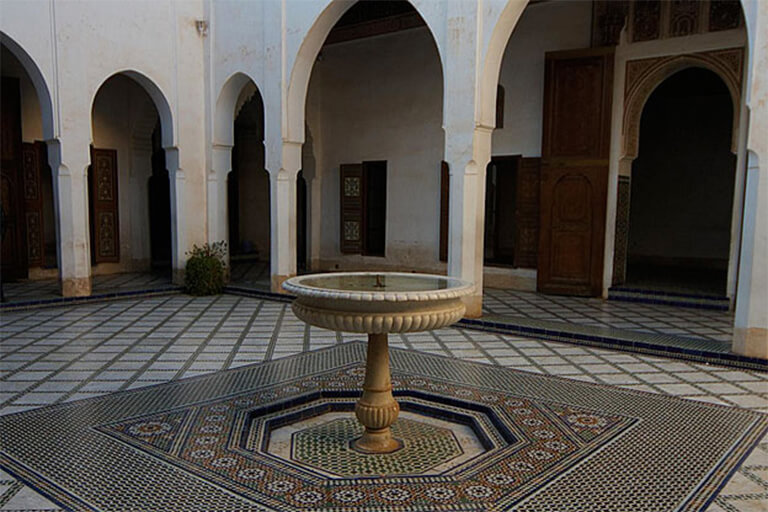Muslim Voices — Tessler

Audio transcript:
0:00:07:>>MANAF BASHIR: Welcome to Muslim Voices. I'm your host Manaf Bashir. The debate over whether democracy is possible in the Arab world has been raging for years. There are those who say because most Arab nations are Muslim, democracy can never happen. Others think Arab culture is incompatible with democratic ideals. Professor Mark Tessler from the University of Michigan is an expert on the Middle East. For several years he's been surveying a handful of Arab countries trying to discover if democracy is possible. The latest survey shows there does seem to be a desire for self governance, as Tessler tells Rosemary Pennington.
0:00:48:>>MARK TESSLER: There are a number of things we know from research in this area that are important for democratic transitions to succeed. Probably not the thing that's most immediately important, in terms of initiating a transition, is what the public thinks. But in the long run, having a supportive public is very, very important. It's not only supportive in terms of that they value and appreciate democracy - that's one component. But they possess the values that might be called democratic - respect for pluralism, and tolerance, and diversity, and civic engagement and things like that. All of those things are present in significant degrees among the populations we've surveyed. So to the extent that the question is why is there no democracy in the region, it's not because of a lack of support, or interest or the values of the public.
0:01:34:>>ROSEMARY PENNINGTON: Are there governments in the Arab world that seem to be more receptive to what their populaces seem to be wanting?
0:01:41:>>MARK TESSLER: There's a lot of variation. I wouldn't say there's - I mean, and, you know, there will be arguments about this either by area specialists or some representative of some government who's listening. He or she might say well, they're not - we're doing much more than we're getting credit for. I wouldn't say there's any country, that I can think of, that is really in the forefront of doing everything that its population would like in this respect. But there are countries that are doing a reasonable amount. And therefore we need to have some, you know, some complexity in terms of talking about the region as a whole. I don't know if I should mention countries because, I mean, some of them are it's two steps forward and one step backward, and if the one step backward was recently, then maybe we're kind of sending the wrong signal. But I'll say a country like Morocco is not doing too badly in this respect, much as there are things to criticize but there certainly things to praise. That'll be the case in Jordan. To some considerable extent, it would be the case among the Palestinian territories, or in Palestine, or the West Bank and Gaza, whatever you want to call it. That's tied up with Israeli occupation, so it becomes complicated. There are good things happening elsewhere - Kuwait, Lebanon. Most of these stories, if you look at them in detail - and I'm not a specialist in every one - become complicated and the people who want to be critical say well, you're not telling what they didn't do and others would say you're not give him enough credit for this. But the main point would be that it's a complicated region and you can't simply look at any one place that's particularly politically closed down and say that's what the whole region looks like. Nor can you pick one or two that are doing better and saying that's what the region looks like.
0:03:30:>>ROSEMARY PENNINGTON: Your findings have shown that there is a really fervent debate over what the role of Islam should be in this region, as far as democratic reforms go.
0:03:39:>>MARK TESSLER: Yeah. I wouldn't connect it necessarily to democratic reforms. I think there may be - there are two main points to make. One is that it isn't religion that is the primary driver of what people think. So if some people want democracy strongly, other people say I want democracy but maybe I'm not militant about it. And other people say maybe there's a better political system, maybe democracy is too Western - not huge numbers of people would say that but there is a minority that says that. And then what their alternative is is kind of an interesting side question. But which of those categories you're in or how you think about the way you want your country to be governed isn't really shaped by religion. So if you compare the views of people who are more religious and less religious, - and there are different ways to kind of identify who are more religious and or less religious - you won't get any explanatory or predictive power. The people who are more religious are just as eager for democracy as the people who are less religious.
0:04:37:>>MANAF BASHIR: Mark Tessler is a professor of political science at the University of Michigan, as well as director of the school's International Institute. He's one of several researchers involved in the Arab barometer, a survey that explores the attitude in Arab countries toward a variety of issues - including democracy. This has been Muslim Voices, a production of voices and visions in partnership with WFIU Public Media from Indiana University. Support for Muslim Voices comes from the Social Science Research Council. You can subscribe to our podcast on iTunes or join the discussion on our website. Find us online at MuslimVoices.org.


 IU Global
IU Global